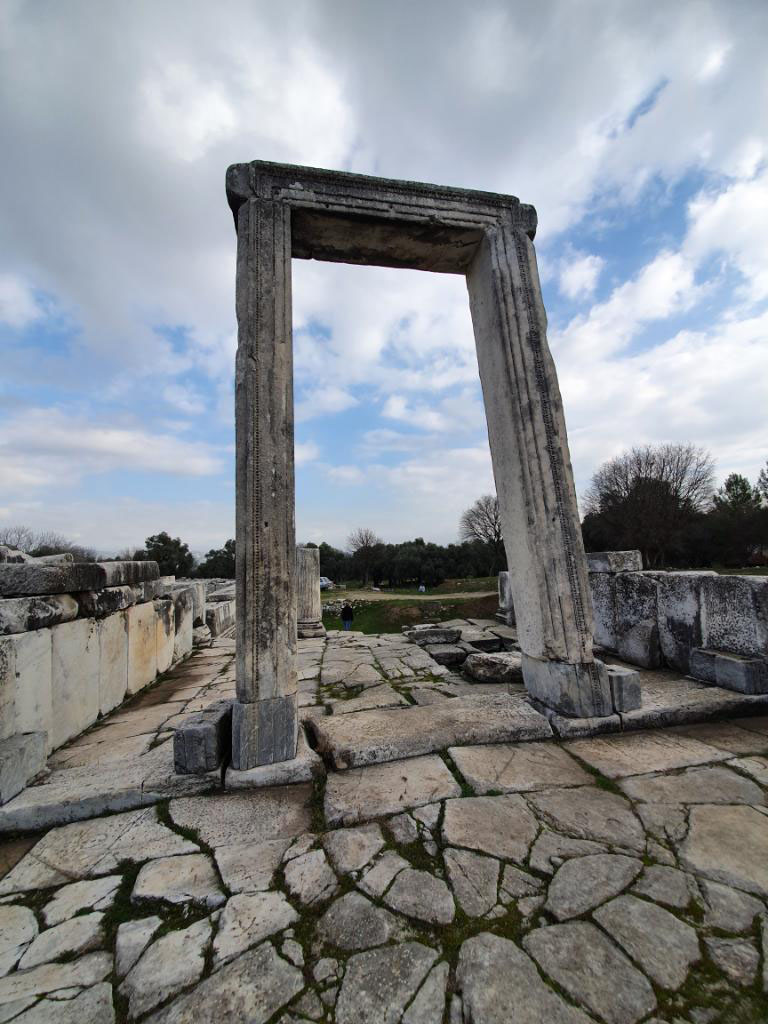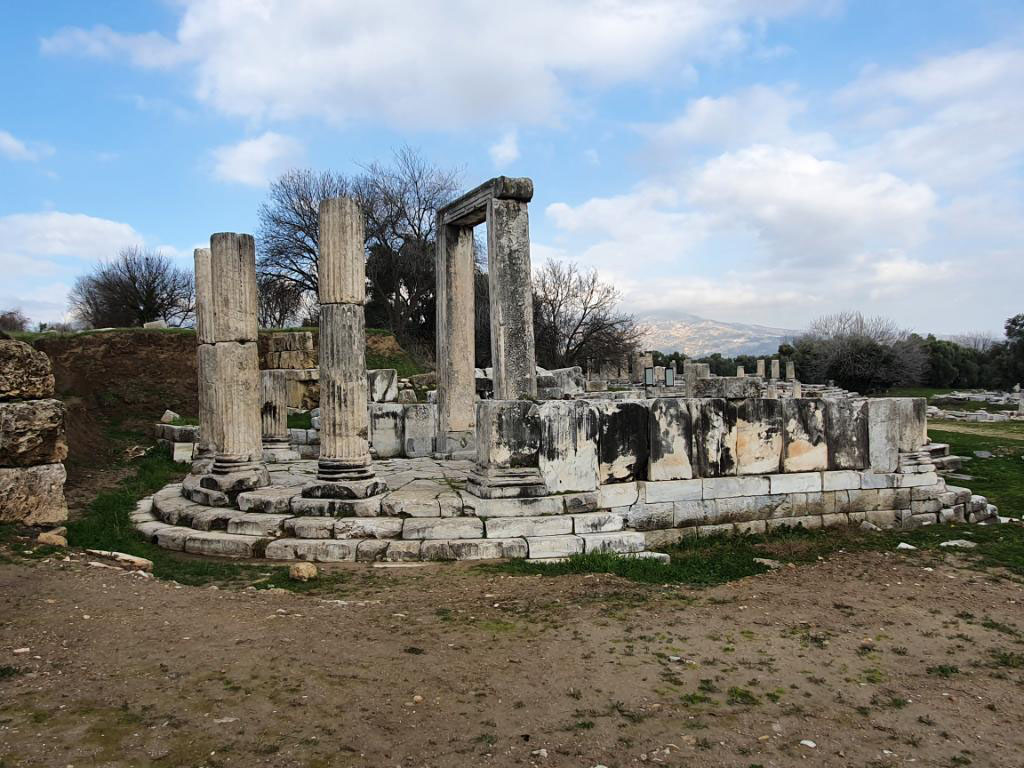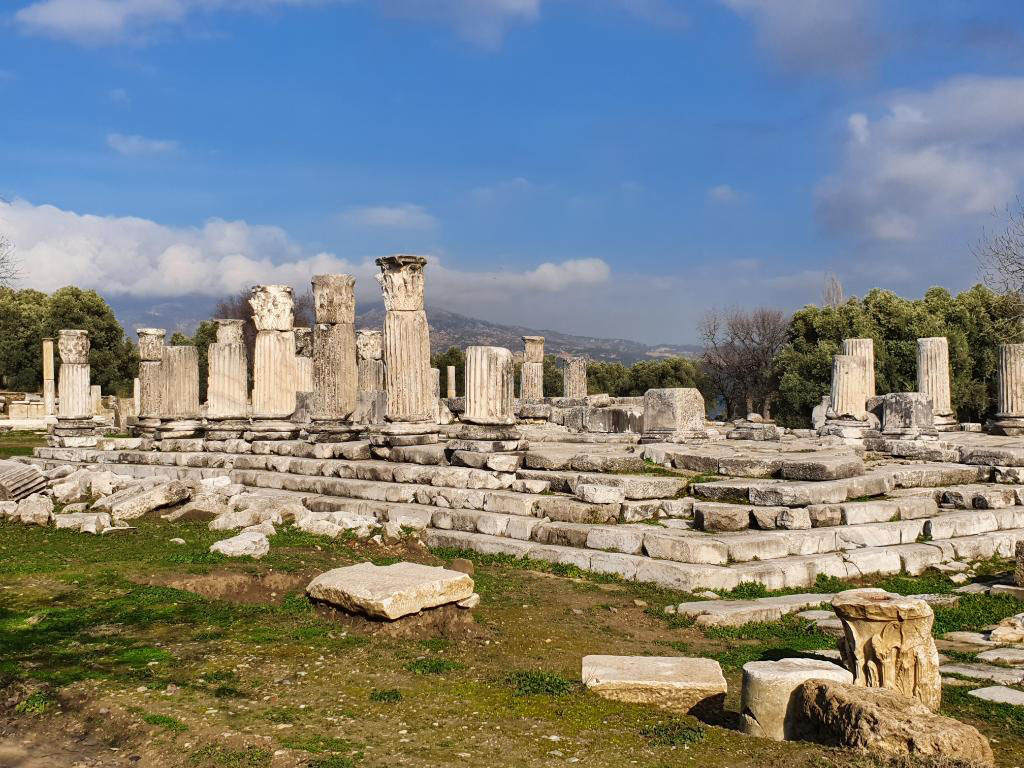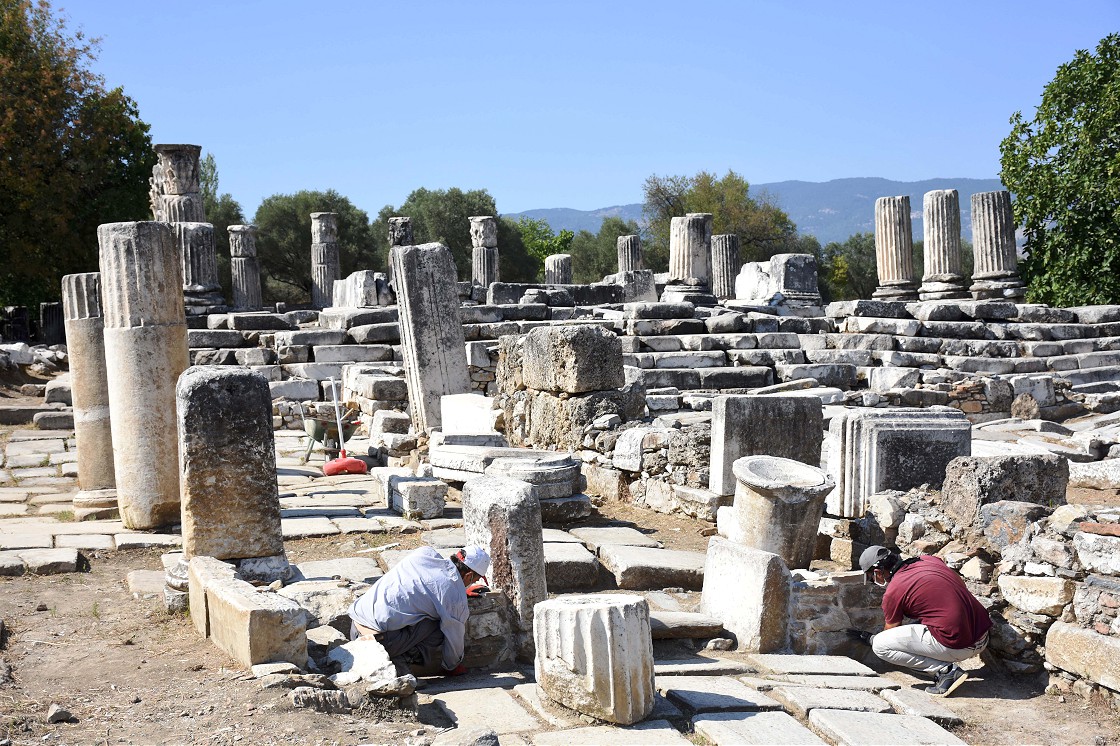By Glenn Maffia
As we near the close of the season and with a little more free time on our hands after hosting family and friends, I wish to invite you to the intriguing site of Lagina situated in the province of Muğla on the southwest Aegean coast. A temple complex within Caria, as this area was once known in antiquity, to visit the goddess Hecate.
Seductively ambiguous
She is an eminently intriguing figure somewhat ‘crowbarred’ into the busy Pantheon of later Greek mythology. I find her seductively ambiguous as her origins remain mysteriously vague.
In the narrow parameters of the ancient Greek order of deities, Hecate was reduced to a rather peripheral figure, to an extent demoted into a dark, shadowy, subterranean world populated by the dead.
In the Greek Pantheon of the gods Hecate accoutrements were murky and ill defined, almost ephemeral, altogether sketchy, inhabiting the underworld. Though that wasn’t necessarily always the case, for Hecate was also once seen as the protector of children, warriors, athletes, hunters, herders and fishermen.

A reconstructed doorway, but the flooring is authentic.
Similar to all the gods of ancient Greece, she may, upon a whim and a fancy choose to withhold her gifts – that was a god’s privilege.
Though even here her powers are limited as they are also covered by existing Greek gods, she is eclipsed by this lack of individualism. Hence her more persuasively dark and sinister role of the goddess of magic and witchcraft, lunar lore and creatures of the night, dog sacrifices, as well as protector of doorways and crossroads.
I cannot help but think this has tarnished the image of her deity. For Hecate was an acquired god from outside the Greek Pantheon taken on by them after the colonisation of the Aegean coast.
Hecate was originally a Carian goddess. I believe a ‘Mother Goddess’, much similar to the Phrygian (in north Anatolia) mother goddess, Cybele. Unfortunately, any evidence resides in the far distance of time and, probably, irretrievable.
The forever shifting shadows
Of the most ancient of Greek writers in the 8th century BCE Homer, in both the Iliad and Odyssey, mentions a multitude of various gods, but not a single word about Hecate.
Whereas, a contemporary of Homer, Hesiod, in his Theogany Hecate is esteemed as a powerful goddess who has dominion over the earth, sea and sky, but no mention of any Underworld connection. It appears likely that Hecate’s devolvement came from the Greek pantheon being too cluttered and her origin being Carian, thus not being entirely under the colonialists’ yoke. Stories can be retold with a prejudicial bias.
The religious centre dedicated to Hecate at Lagina has unfortunately been prone to that blight of the Turkish Ministry of Culture and Tourism trying to make ancient sites appetising to ‘happy-snap’ day trippers. Though it does hold many fascinating points of interest.
Yes, there are the usual scars of the early Christians attempting to usurp a ‘pagan’ site. They were not pagan, they were polytheists (believers in many gods). One can observe Christian structures built over antique places of religious reverence.
The ground plan is interestingly intricate and harmonious with a well-designed layout, which befits such a place to an esteemed deity. Here, I am convinced, was the home of the Carian Mother Goddess.

Entrance to the Lagina site from the Sacred Road
With an echo of Didyma’s relationship with Miletus we can also find at Lagina a Sacred Road leading, approximately, 11km (though this distance may have deviated somewhat as the terrain is acutely steep) to the city of Stratonicea, later called the ‘city of the gladiators’.
Whilst mentioning Miletus (which once was firmly a part of Caria) there is archaeological evidence of devotional dedications to Hecate on a circular Altar in the precinct of Apollo Delphinios, the beginning of the Sacred Road to ancient Didyma, which possibly attests to an even more ancient origin.
Also within Miletus, when visiting the cave beneath the theatre with an academic friend he noticed a niche in one of the corners with a vague triangular shape within the recess.

The Temple of Hecate
He pronounced it as once the position of the seated figure of the Phrygian Mother Goddess, Cybele, we find so often in different areas of Türkiye. I pointed out, “Why a North Anatolian Mother Goddess, why not a Carian one?” Especially as she had had venerations bestowed upon her in this very city? Credit to him, he quickly changed his mind.
A little note to remember; Hecate was also the goddess of cakes decorated with lit miniature torches, so next time you blow out the candles on your birthday cake remember the name Hecate.
